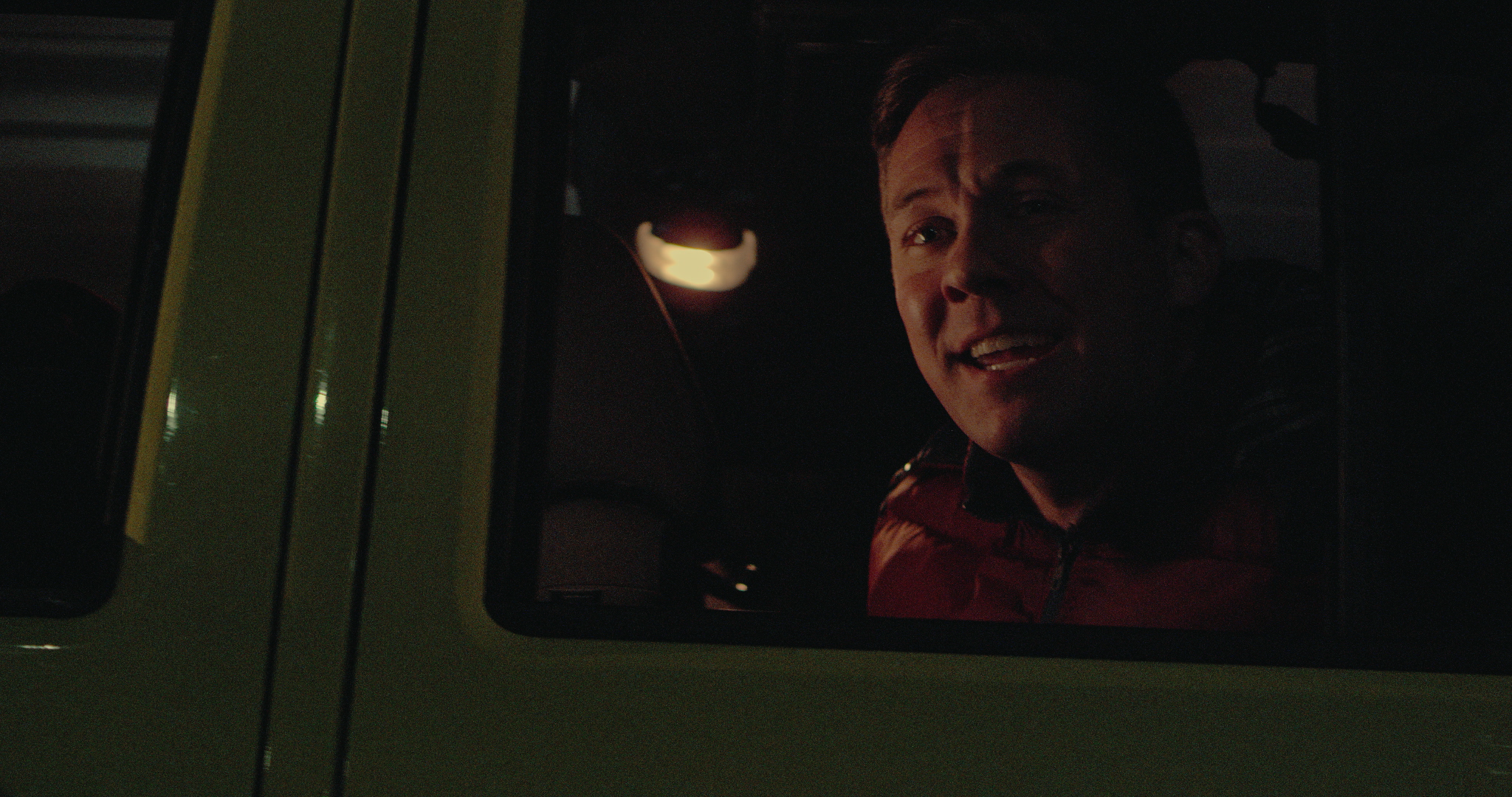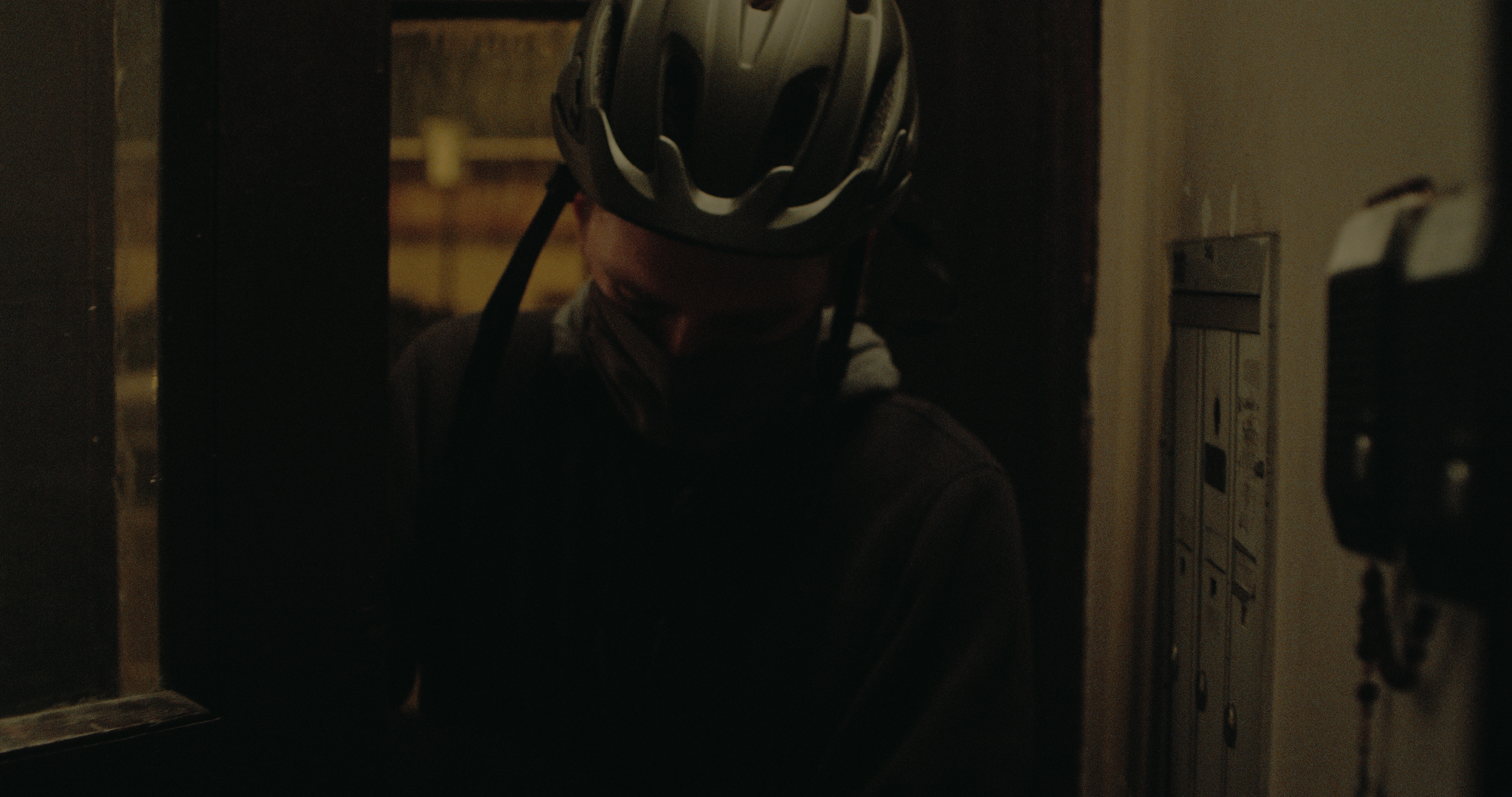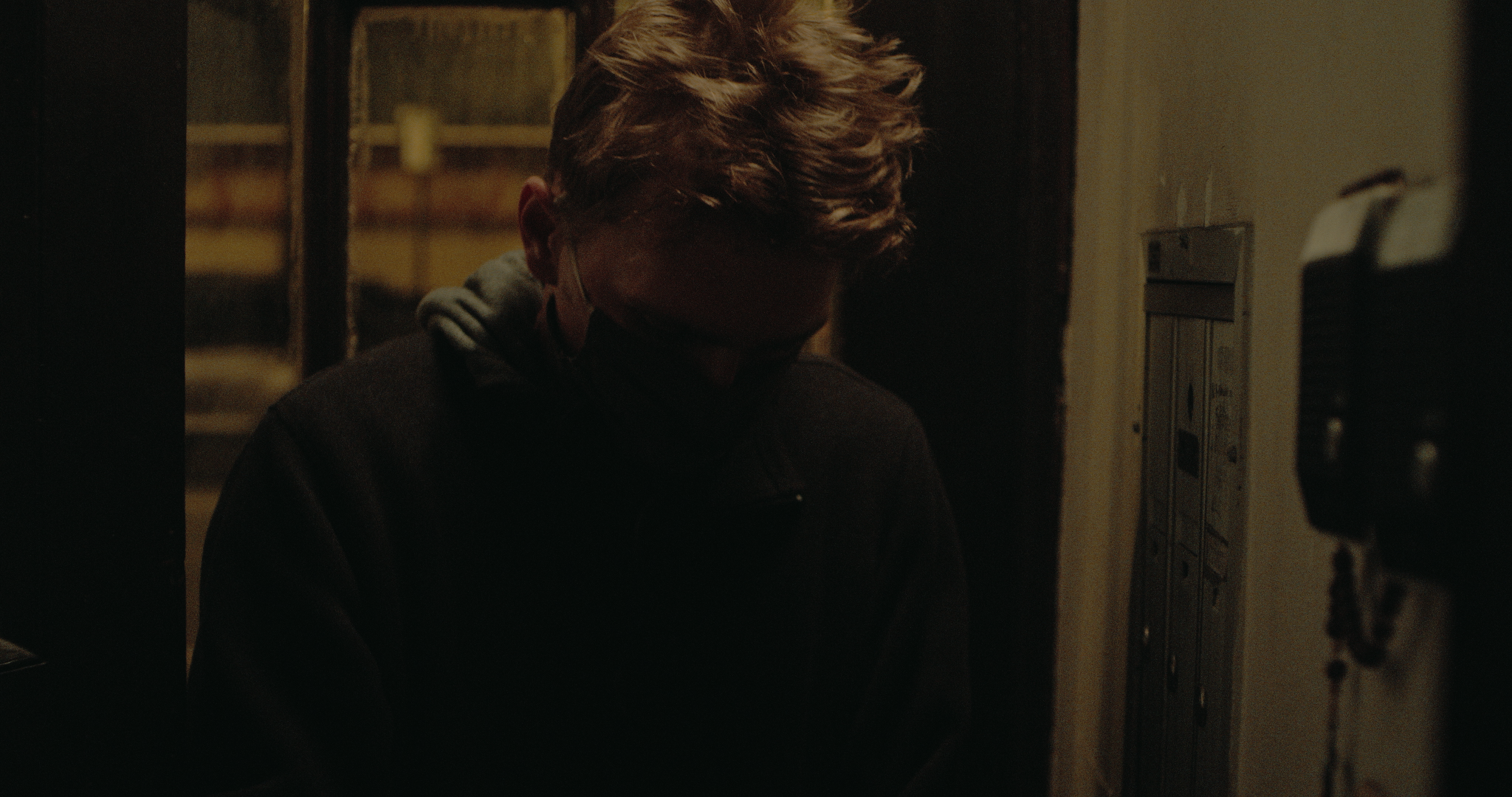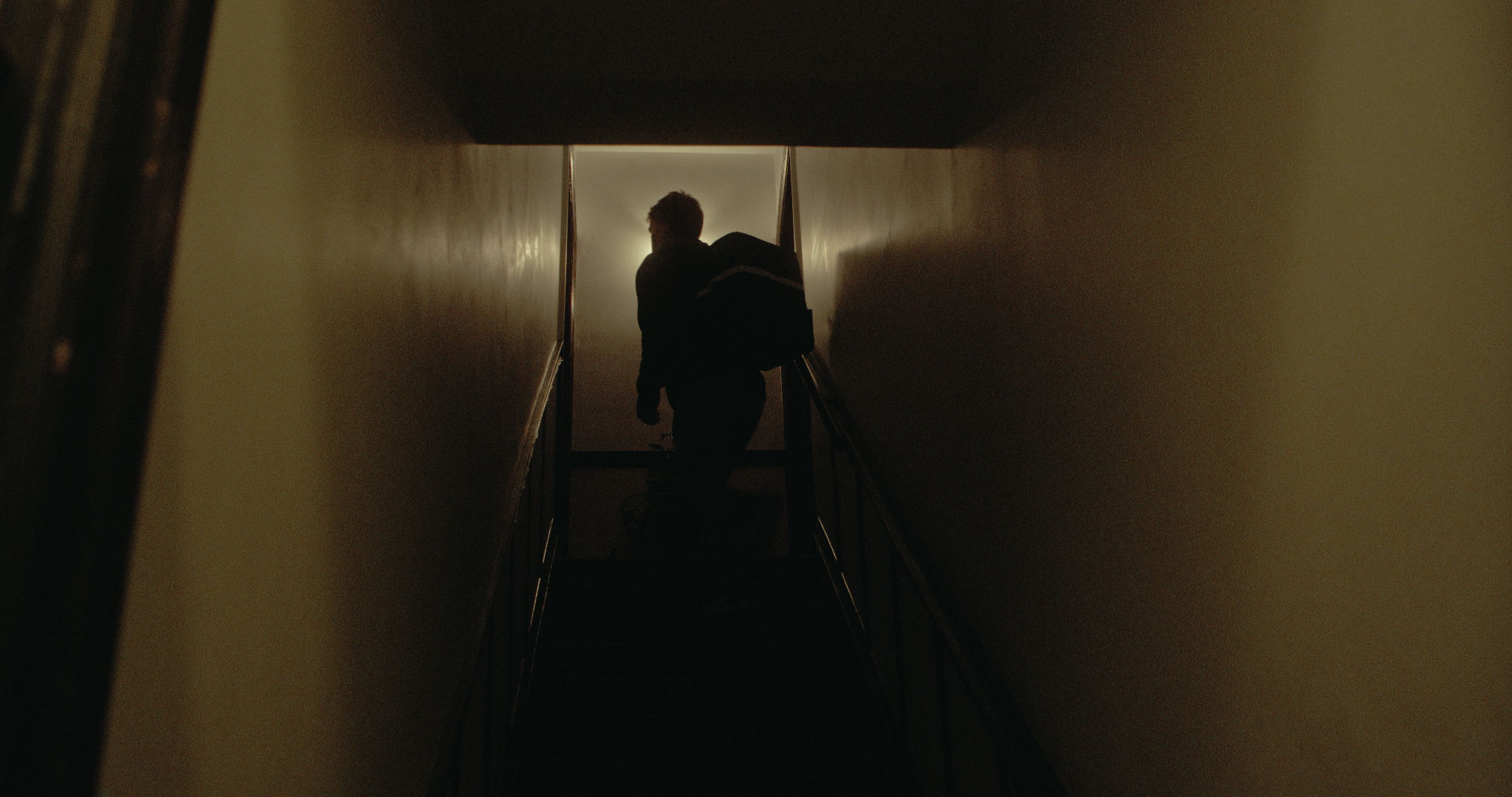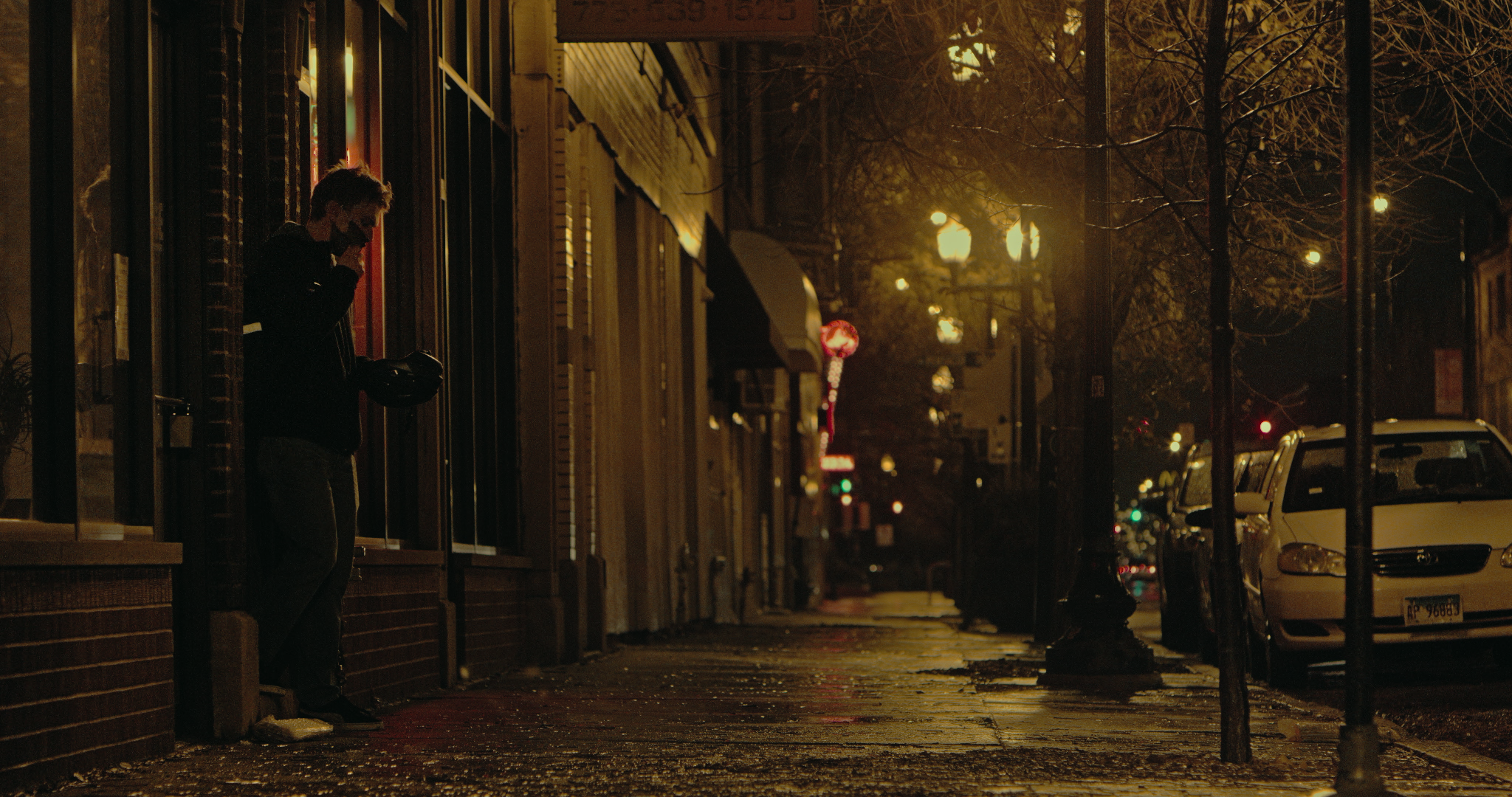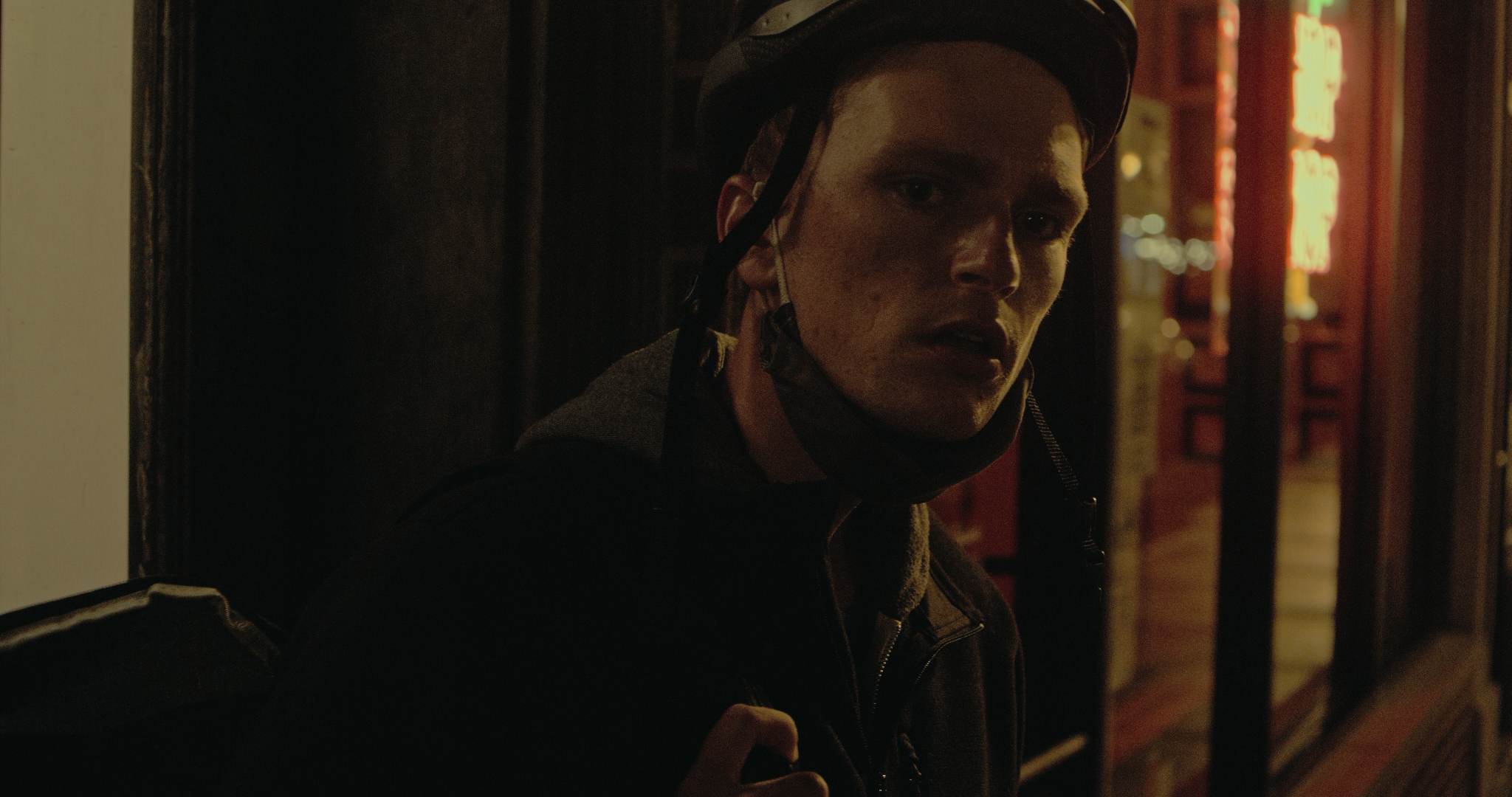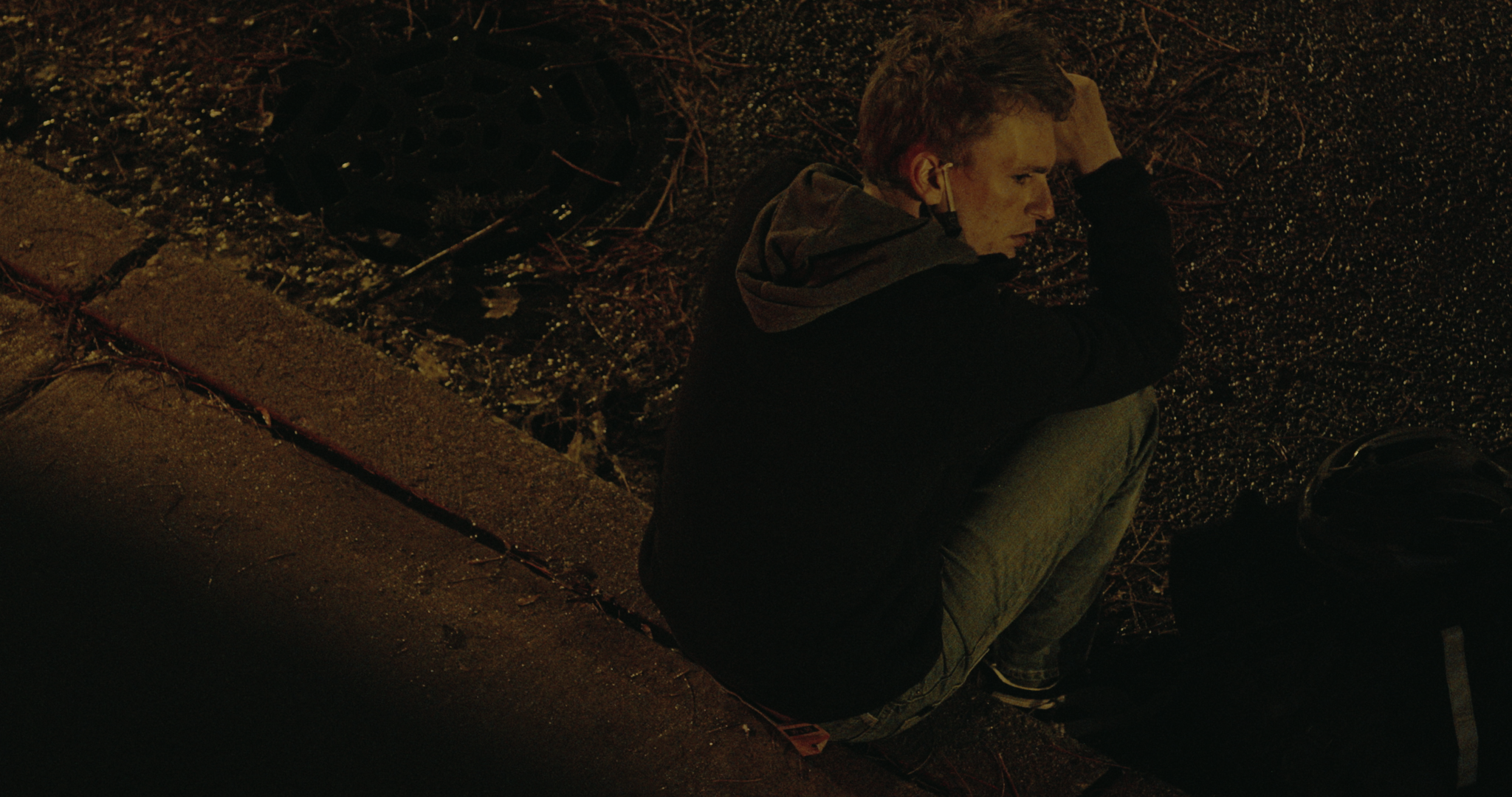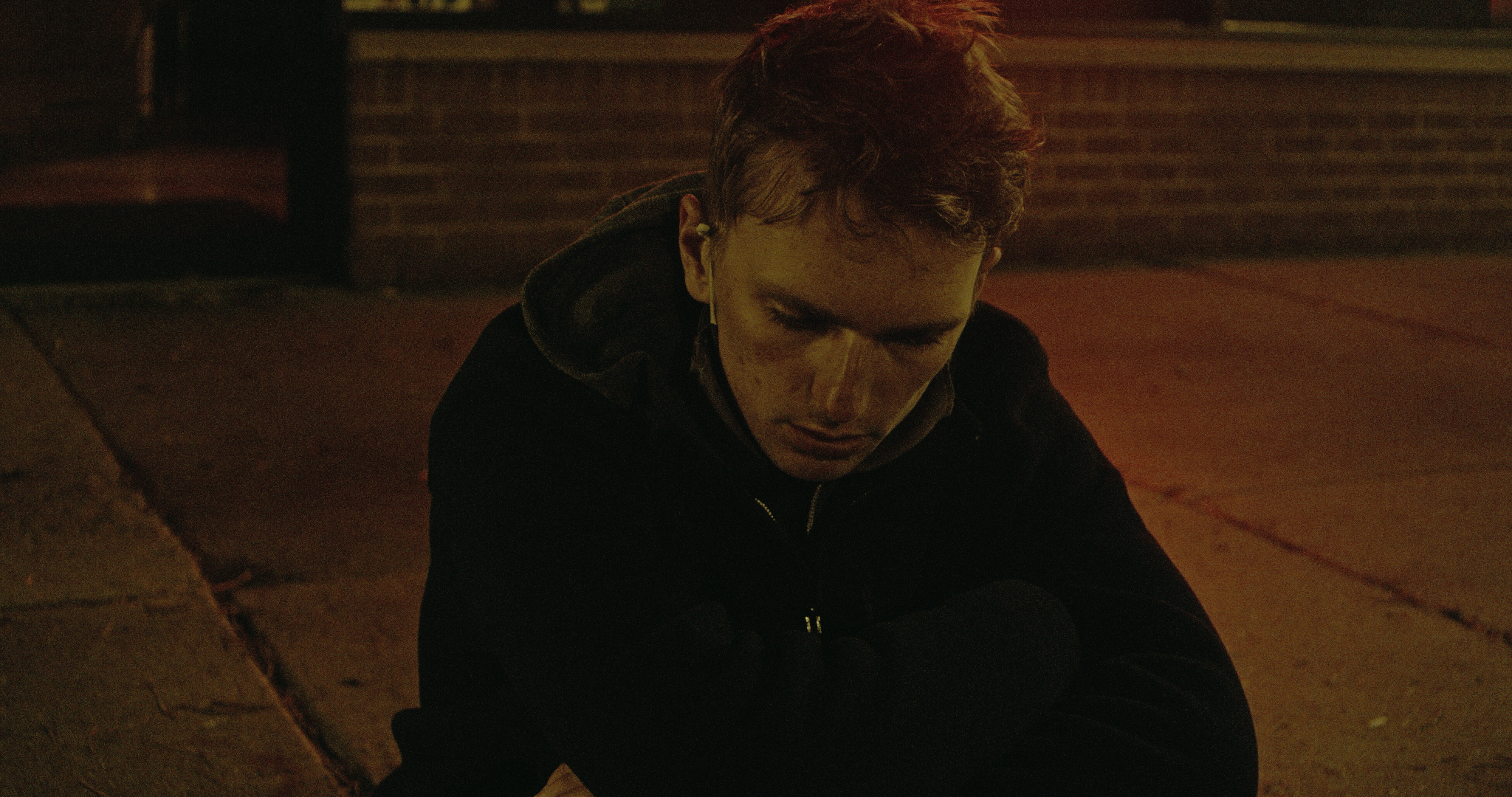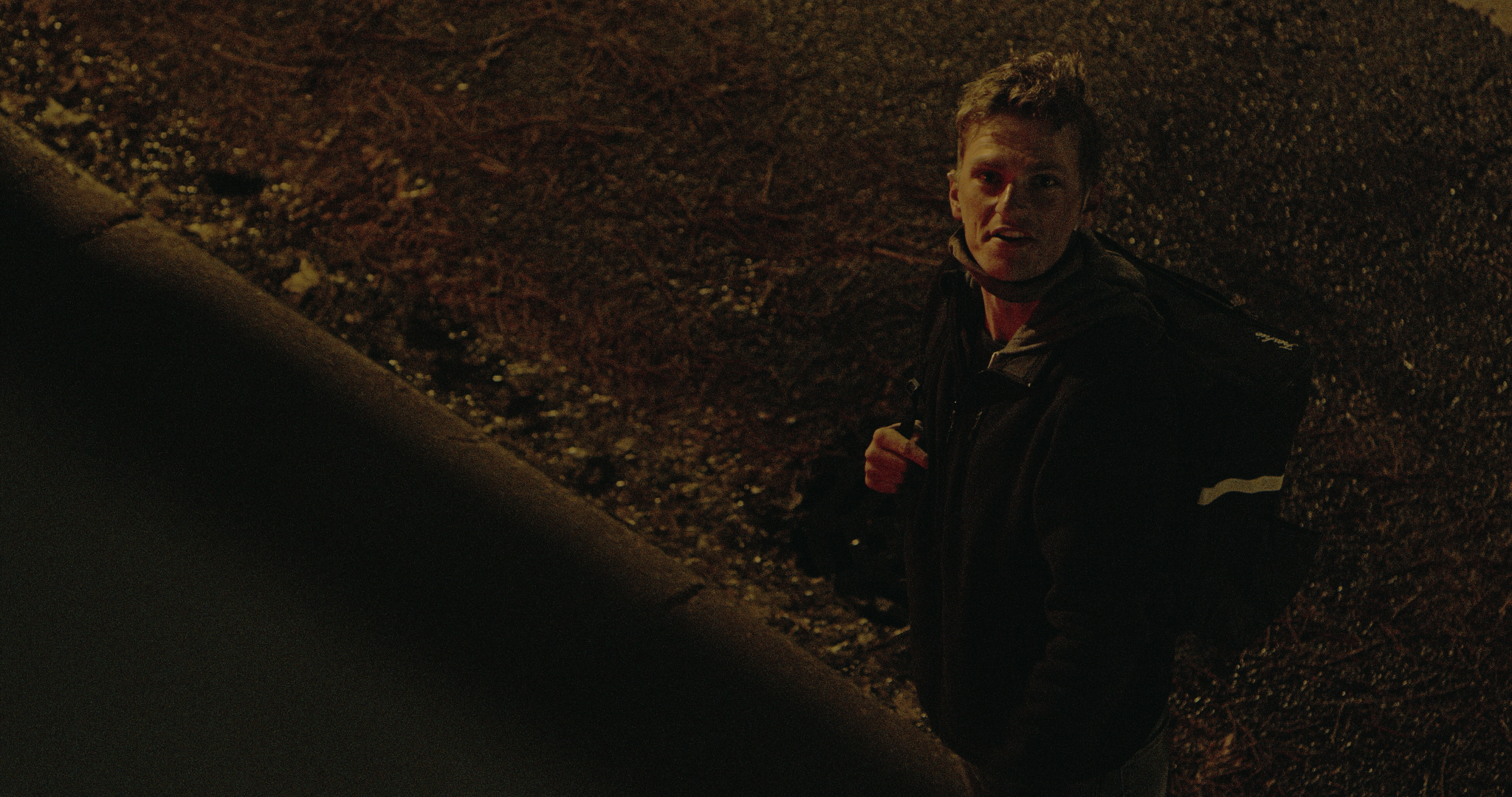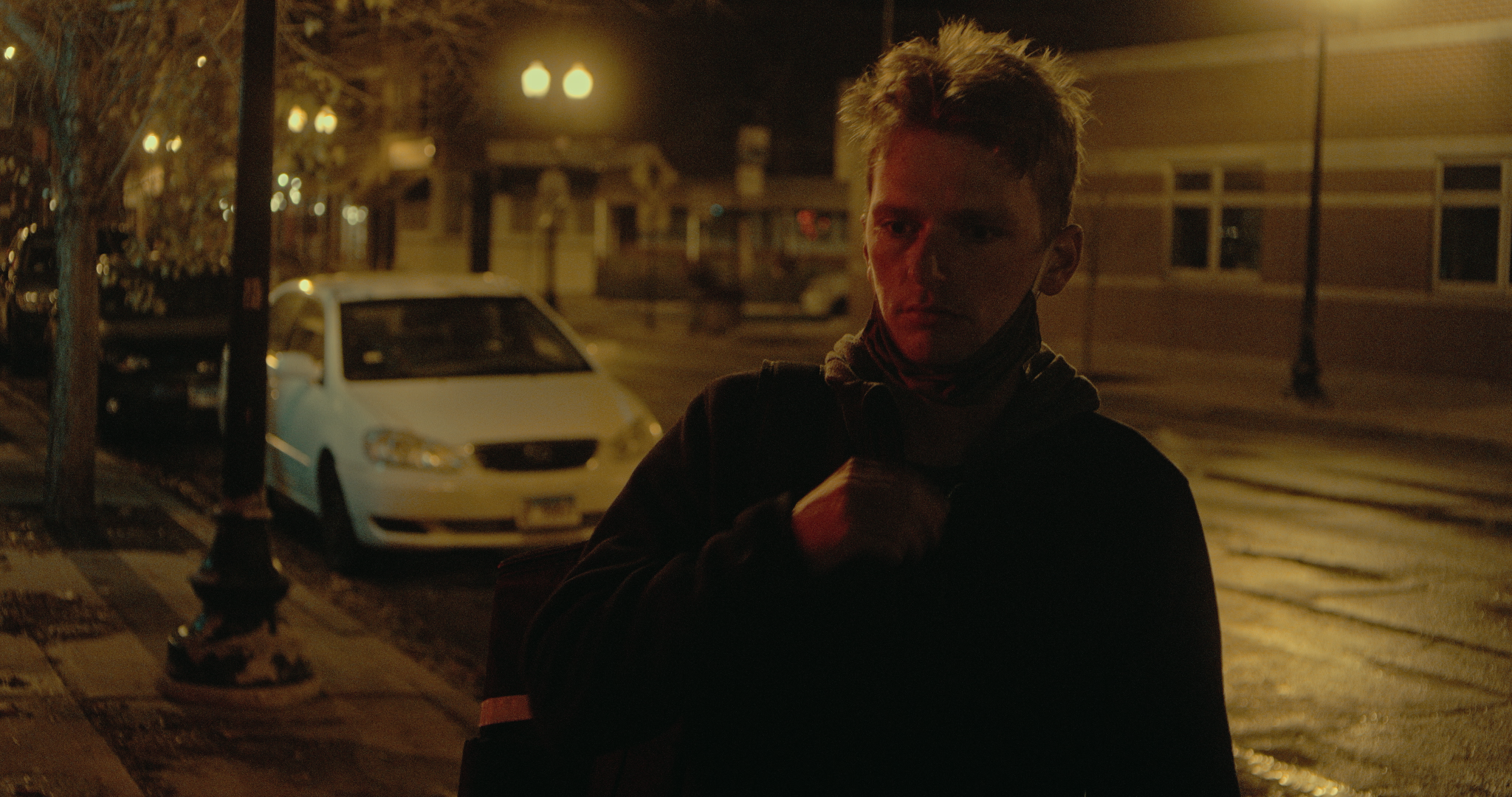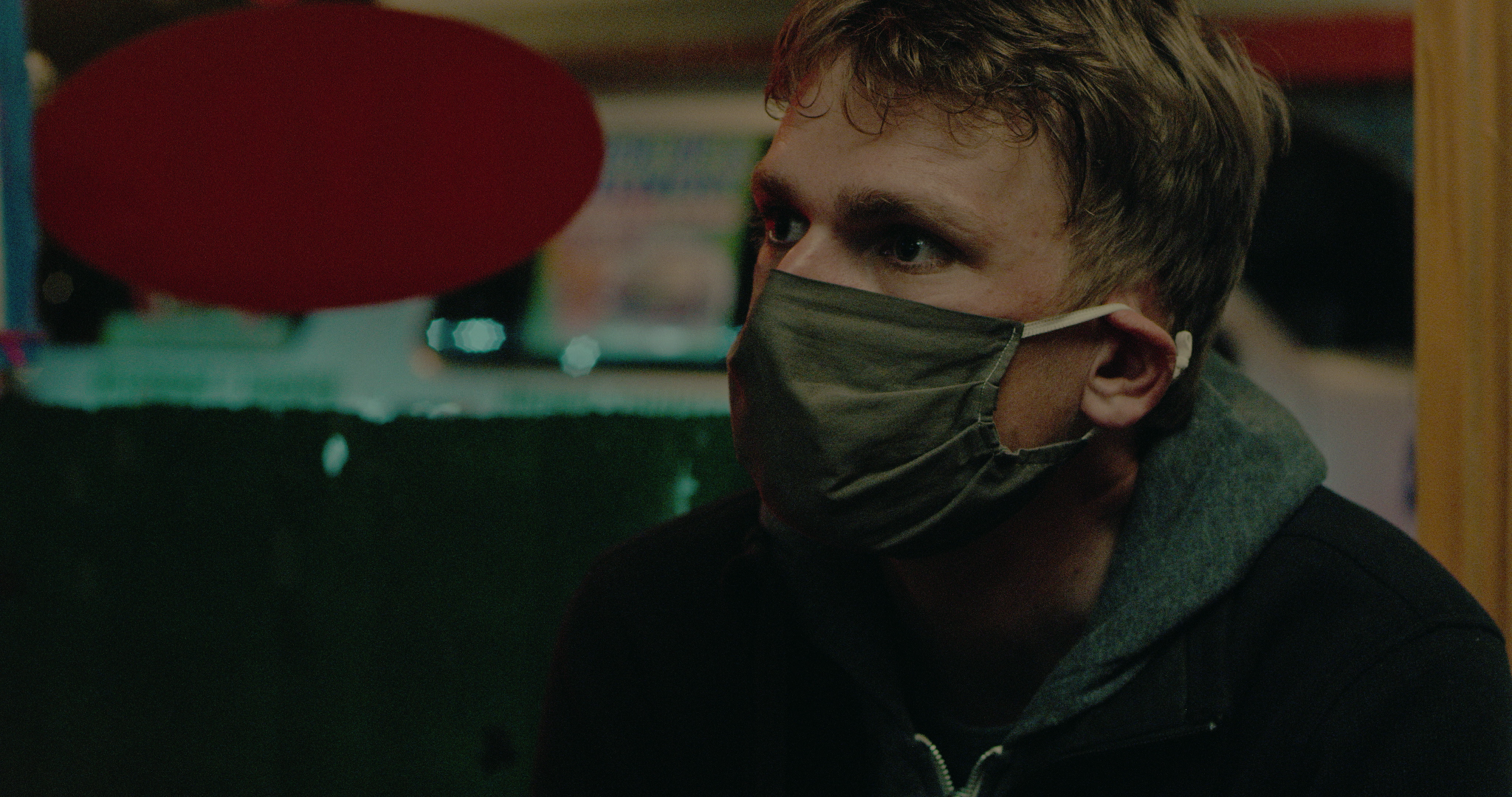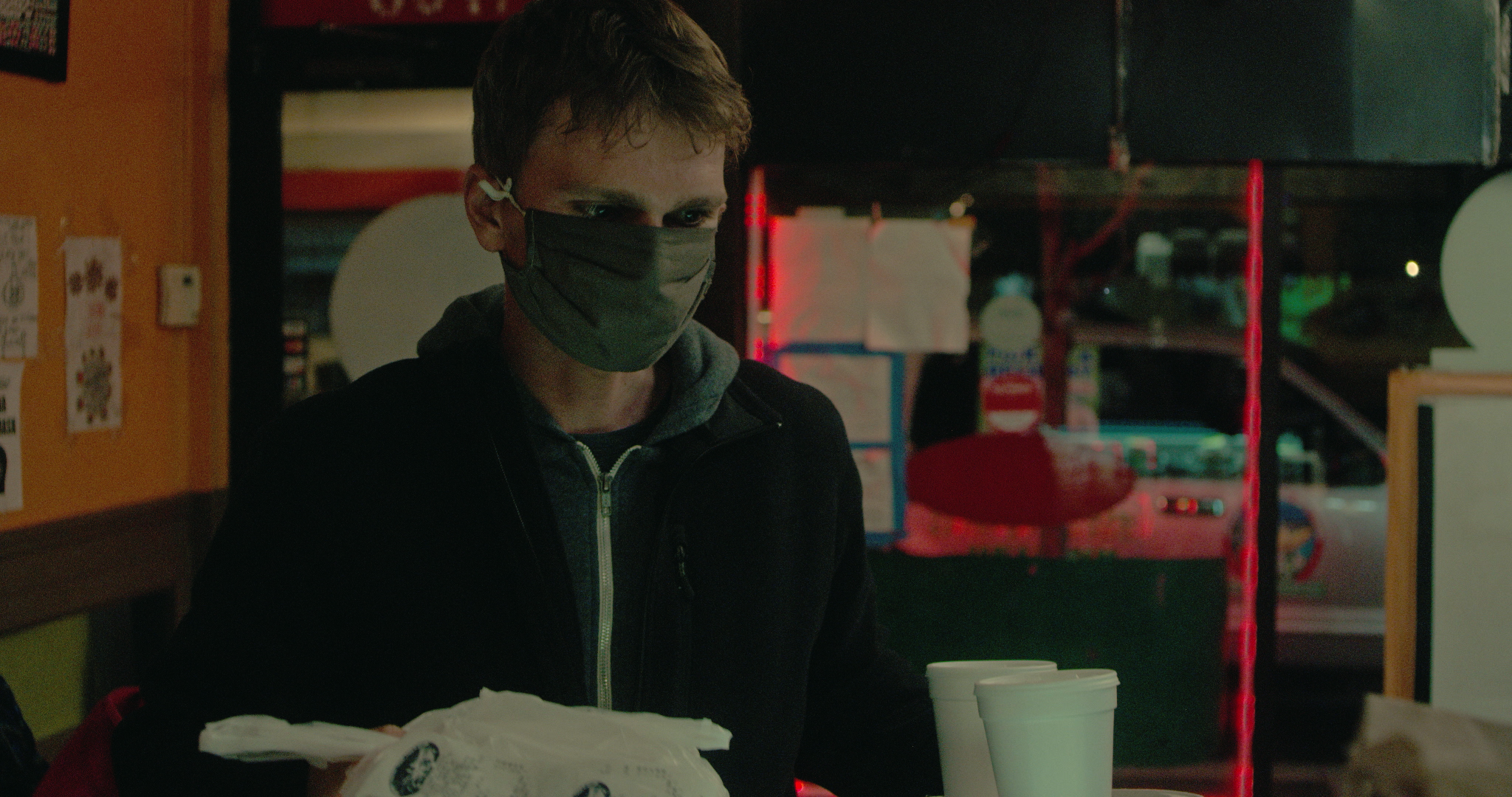“A food delivery guy struggles to complete his orders on time. Then everything goes wrong.
Bob is working as a food delivery carrier during a tough winter and a pandemic, all while riding a bike. It’s a struggle, but he can’t lose this job or be late on deliveries, even with the crappy weather or the people who harass him on the streets.
For one delivery, he is instructed to leave the order outside a door without much thanks or acknowledgment. Then he realizes his bike is stolen. On top of that, the distressed customer flags him down and tells him that he forgot the horchata drinks that were the reason for the order. But when she decides to come down to talk to him directly, Bob’s terrible night takes an interesting turn.
Directed by Anthony Pitsilos from a script co-written with Allison Torem, this short dramedy is a slice-of-life story, set during one night of a beleaguered young man just trying to get through life like everyone else. It’s shot in an unobtrusive naturalistic style like many other narratives in this stylistic mode, and it leans on a foundation of solid writing and performance to capture time, place and character.
But this particular “slice” takes place during the global pandemic, and the enforced isolation of lockdown forms the backdrop of the dramatic situation, where two people, struggling in different ways, collide with one another, at least emotionally. Bob has the difficulty of trying to work an often thankless job during a difficult time. His customer Colleen is mired in a depression caused by the extreme social loneliness of a lockdown spent alone.
But the story isn’t necessarily “about the pandemic.” The writing does have a sharp eye for the small yet telling ways that the pandemic has wormed its way into daily life, such as mistaking someone on a street for a friend because of masks or the awkwardness in how people arrange themselves for conversations in person. But the story is more interested in how the pandemic’s psychological effects and how that affects how people treat and relate to one another.
It has undeniably escalated stress and adversity, whether it’s the tenuous nature of earning a living or the mental health challenges, which no doubt have risen with social isolation. Actors Colton Adams as Bob and Rogue Schmidt as Colleen capture these different poles of challenge, but more importantly, they capture the awkwardness of two people encased in their difficulties. And at first, their irritation and annoyance seem to “infect” and intensify one another. But as they extend glimmers of sympathy to one another, their conversation ripens into a profound opportunity of mutual understanding.
Humanistic in spirit, compassionate and warmly compelling, “Horchata” in the end is ultimately moving in how it honors and recognizes the value of seemingly casual social encounters. It takes time, for example, to capture the easygoing banter and singing between co-workers, soaking in a simple but rich moment of togetherness.
Saying hello to customers, chit-chat with cashiers, short but friendly conversations with people who temporarily share space: these encounters may not be spending time with friends and loved ones, but they still form a valuable addition to the social fabric that links us to the larger body of humanity. They are still opportunities for people to exchange kindness and understanding, however small and fleeting. But those small moments can carry enormous weight and value, especially during a time of challenge. ”
Source: Omeleto | Horchata Review





